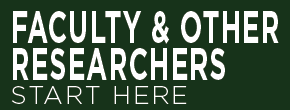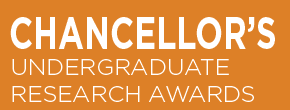Akira Yoshii
Email Address: ayoshii@uic.eduCollege: Medicine Department: Anatomy and Cell Biology
Secondary Department: Pediatrics
Title: assistant professor
Office: COMRB 6051 Phone: 312-996-4954
Participating in the Chancellor’s Undergraduate Research Awards program: Yes
Research Interest:
Synaptic plasticity, brain development, connectivity, autism, neurodevelopmental disorders Minimum time commitment in hours per week: 20 Qualifications of a Student:
Neuroscience and Biology Courses. Prior experience in biological research is preferred but not required. Brief Summary of what is expected from the student:
The Yoshii lab studies the molecular and cellular events during brain development. Our overarching goal is to understand the fundamental mechanisms of synaptic plasticity that drive normal brain circuit formation and those that are disrupted in neurodevelopmental disorders. Autism spectrum disorder (ASD) is a group of neurodevelopmental disorders in which afflicted patients have repetitive behaviors, restricted social communication skills, and, in some cases, intellectual disabilities. ASD has a strong genetic predisposition and can be caused by mutations in various synaptic proteins and signaling molecules. For instance, a genetic disease called tuberous sclerosis complex (TSC) is caused by mutations in TSC-1 and -2 genes, and is strongly associated with autistic behaviors as well as seizures. TSC-1 and -2 form a protein complex and regulate a signaling pathway that regulates cell growth and differentiation. However, the role of the TSC protein complex in synaptic plasticity remains unclear. We analyze synaptic dysfunctions and abnormal neuronal circuit formation in a brain-specific Tsc1-knockout mouse model. You will have ample opportunities for hands-on experience in biochemistry, immunohistochemistry, neuron culture, live-cell imaging, in vivo fluorescence microscopy, and electrophysiological techniques. We are currently examining the role of serotonin signaling and NMDA receptor function in the pathophysiology of TSC. Ultimately, we hope to identify a new therapeutic target to cure ASD. We also study a rare lysosomal storage disease called infantile neuronal ceroid lipofuscinosis (CLN1). This devastating neurological disorder presents with blindness, seizure, developmental regression, and causes death before age ten. The most characteristic feature of the disease is the accumulation of cellular waste product, called lipofuscin, in neurons. Interestingly, lipofuscin also accumulates in various adult-onset neurodegenerative diseases, implicating a common pathological process. CLN1 is caused by mutations in the lysosomal enzyme, palmitoyl-protein thioesterase 1 (PPT1). We use a mouse model of CLN1 that lacks PPT1 function and recently found that PPT1 plays a vital role in synaptic transmission by controlling the localization and degradation of proteins at the synapse. We will further delve into molecular mechanisms underlying synaptic plasticity. We will harness these principles to develop new therapeutic strategies to treat neurodegeneration, including Alzheimer’s disease. Minimum time commitment in hours per week: 12 Qualifications: We welcome students who are motivated, responsible, and eager to learn neuroscience. No prior lab experience is required for students that are a freshman, or sophomores, but completion of cellular and molecular biology and neuroscience is prerequisite. Previous lab experience is desired for juniors and seniors. Students will gain the most from their time in Yoshii lab by engaging with lab techniques, reading and critically analyzing the current neuroscience literature (which will be facilitated by weekly lab journal club meetings), and integrating concepts from coursework and other sources with those learned in lab. A minimum of 12 hrs/wk is expected. Blocks of 3-4 hours on each day worked are preferred (for example Monday, Wednesday, Friday—from 1-5pm is a suitable schedule). Senior members of the lab will be in early mornings and through the evening, so schedules can be relatively flexible (anytime between 7am-7pm). Motivated students are encouraged to work full or half time during the summers and breaks. Brief Summary of what is expected from the student: Students working in the Yoshii lab are to aspire to learn new concepts, have an appreciation for the scientific process, and accept constructive criticism. Students are encouraged to apply their talents and creativity within the lab. Students must be punctual, diligent, and responsible. In turn, students can expect that all members of the lab will be committed to a productive and enriching lab environment in which the student can gain valuable mentorship and flourish. Previous undergraduates from the Yoshii lab have developed and presented their own research projects at the UIC Forum and have gained authorship on scientific articles published in well-respected journals. Contact researcher via URE Email Webform



